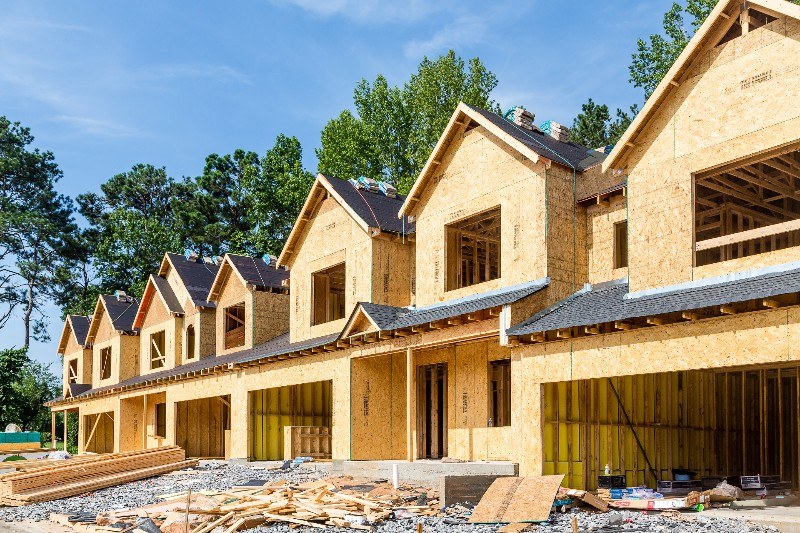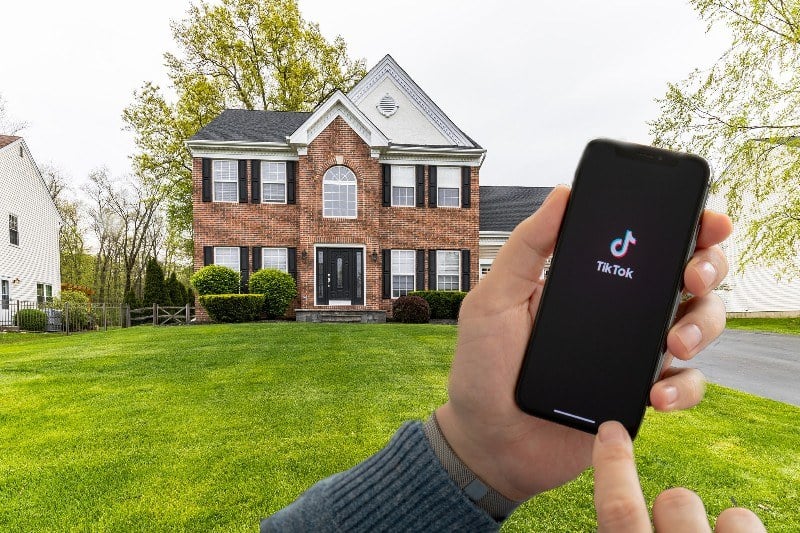
Is a New Home Inspection Necessary? Why You Might Want One
Posted on Nov 01, 2022
It’s a common belief that new build homes come free of defects. They were just made - right? They...

Posted on Nov 01, 2022
Home inspections are an incredibly important part of buying a home and shouldn't be skipped if you can help it. They can reveal issues that the current homeowner is unaware of, and often impact the final selling price of the home. Inspections are a way for both buyers and sellers to protect themselves from future liability. If you’ve never dealt with a home inspection before, you might be confused about what is or isn’t included. Here’s what you need to know.
According to Realtor.com, an average home inspection for a single family home will cost between $300 and $500 — the current national average is $337. However, this number can vary depending on a wide range of factors, including location and size of the home. Here’s the average price of a home inspection in several of our markets:
If the home includes additional features or systems, such as a barn, septic system or private well, this can increase the price of the inspection.
Termite inspections (or Wood Destroying Organism inspections) require an additional license to conduct (though many home inspectors will have this license, so they can do both at the same time). These inspectors can check for insects such as ants and termites, as well as fungi like toxic mold. This inspection will take around an hour and come with an additional fee. According to Home Advisor, the average cost of a termite inspection is $100.
Radon inspections are also optional, but recommended - approximately 1 in every 15 homes have elevated levels of radon gas (thought this is less common in cities). Radon exposure can lead to lung cancer over time. This will run you another $100 approximately.
A plumbing inspection is sometimes recommended for older homes, or for homes that are suspected to have sewer line problems. They are not included in the base inspection and will cost an average of $200 more.
Home inspectors are concerned with the home’s livable condition, not whether it’s pretty or ugly. An outdated kitchen won’t make it into your inspection, but loose tiles or painted-over outlets will.
Keep in mind that the inspector is not expected to pull apart your home — while they are trained to look for subtle signs of issues, they won’t be drilling homes through your drywall to inspect the interior for mold or insects.
For this reason it's possible for inspectors to miss issues if they're not apparent to the naked eye.
According to the American Society of Home Inspectors, this is what you can expect your inspector to focus on:
So: is it the buyer or the seller who pays for the inspection? The homebuyer pays for the inspection, and the inspection is not technically considered part of closing costs (you will pay for it slightly before you close on the house - but it's often included in your Realtor's estimation of what you should put aside for closing costs).
If you back out of the contract for the home, you'll still be out the cost of the inspection - but it's a small price to pay if it means avoiding unexpected costly and difficult repairs.
Sometimes a home seller will pay for a home inspection prior to listing the house - this can be a savvy way to get ahead of potential issues that could potentially hold up the sale or reduce the home's selling price once an offer is made.
Home inspections take one to three hours. This will depend on both the size of the house, how experienced the inspector is, and how easy it is for them to maneuver around.
Attending the home inspection yourself will allow you to have a more full conversation with your home inspector. If you can't attend, they will send you a detailed, multi-page report of their findings. Just because something is listed in the report, doesn't mean it's necessarily a serious problem.
In competitive markets, you may be tempted to ditch the inspection in order to make your offer more appealing to home sellers. However, it’s important to keep in mind that the inspection is your bargaining chip — and it’s a standard step in selling a home. House inspections — even on new homes — almost always turn up something.
If that something is a small issue, like a leaking faucet or a missing smoke detector, it might not matter much to you. But if the issue is a shifting foundation, HVAC issues or plumbing problems, it’s important to uncover — as repairs for these issues can potentially cost thousands of dollars. If you knew a home would immediately require $30,000 worth of reconstruction and remediation to address termites, would you still be willing to offer top dollar?
In competitive markets, many buyers structure their deals so that the inspection is a pass/fail contingency. In other words, if minor issues are revealed during the inspection, the buyer waives their right to request money - but if the issues are serious enough, they can still back out of the sale as a result. This helps protect the buyer from having to pay for serious unexpected issues, while also assuaging the seller that they won't be nickled and dimed.
Requirements for home sales vary state by state. Lenders often require repairs for things that could impact living conditions (like a working HVAC, the roof, renovations done without a permit, etc). Generally if there are structural, health, and regulatory concerns then repairs might be required.
Most fixes aren't required, though, and you can buy the home without addressing the problems in the inspection.
Beyond that, the purchase agreement between the seller and the buyer dictates which repairs need to be done. Typically when issues come up with inspection, the seller will either make the fixes before the sale, or offer a discount from the home price, leaving the buyer responsible for the repairs.
Note: don't guess when it comes to the cost of hiring a contractor. Always get an estimate. If a home seller offers you $10,000 off the listing price to account for the issues with the roof that came up during inspection, this might sound great - until you hire a contractor later on who quotes you $20,000 for the job.
So what happens if the inspector fails to notice an issue? This is a question that comes up frequently — especially with older homes that are revealed to have problems that never came up during the home buying process. You may move in and everything is fine — only to realize a season later that the basement wall has a crack that leaks, and it might cost you hundreds or thousands of dollars to deal with. So can you sue for negligence or breach of contract?
Typically when your home is inspected, you’ll sign a contract with the inspector, and that contract will likely limit their liability (these contracts often have an exculpatory clause that limits the potential liability to the cost of the inspection). It can also be difficult to prove liability. If you don’t notice the cracked wall for six months, for example, it’s harder to prove that the damage wasn’t incurred during that time. Additionally, your inspection may include language that limits liability — potentially disclaiming areas that the inspector can’t fully access.
In most situations, an inspector is only liable for your home's issues if they were negligent in meeting the applicable standards of their profession. An example would be: your home inspector claiming to inspect the roof, when they never actually did so. They would not be liable for your roof's issues if they checked the roof correctly, but found no problems at the time.
In short: while you can sue your inspector, your chances of winning against them and recovering your damages are small — so it’s good to pay close attention to your inspection while it’s happening, and get a second inspection if you’re not sure about the first.
It's not required, but it's a good idea to have an inspection for your new home. According to the National Association of Realtors, issues turn up during the inspection for 65% of new homes.
There’s plenty of things that can go wrong during home construction — especially when there’s multiple teams putting together your walls, plumbing, electrical, etc. Outdoors, there can be drainage issues or incorrectly applied siding; indoors, appliances may not have been installed properly, or there could be issues with the flooring. Don't assume that a newly built home is problem free!
The three most common new home inspection issues noted by NAR were:
However, the benefit of buying a truly new home is that it often comes with a warranty from the builder. If something goes wrong in the first year, they will typically fix the issue - free of charge.
Read more: Is a New Home Inspection Really Necessary? Here's Why You Might Want One
Your Realtor may have recommendations for home inspectors they’ve worked with in the past: this is a good place to start.
Consumer Reports has a detailed overview of resources you can use to both find and vet home inspectors. It’s a good idea to check online for reviews of your inspector, even if they come highly recommended by your agent, a friend, or family member.
Their website notes: “Hiring someone who’s certified by a professional organization can give you a bit more assurance that the inspector is knowledgeable. Among the requirements for certification from ASHI, for instance, candidates must pass an in-person National Home Inspector Examination and document that they’ve done at least 250 paid home inspections.”
Another tip they offer: ask for a sample copy of an inspection report they’ve already conducted on a home similar to yours. This will give you a great idea of how thorough the inspection is that they conduct, as well as how good they are at communicating the issues they do find.
Curious as to your state's average cost? Rural areas (and smaller homes) lean toward the low end of the estimate, while metro areas (and larger homes) will be on the high end of the range. Keep in mind, these numbers are just approximate.
Subscribe to our newsletter to get essential real estate insights.

Posted on Nov 01, 2022
It’s a common belief that new build homes come free of defects. They were just made - right? They...

Posted on Nov 01, 2022
In a recent survey conducted by Chapman University, a full 25% of respondents reported being afraid...

Posted on Nov 01, 2022
TikTok can be a great resource for homebuyers - especially those who might be moving to new areas,...